
Bathroom
Small Luxury Bathroom Design Ideas
01.29.2026


In This Article
The countertop is the unsung hero of the bathroom. It’s where routines begin and end, where the practical meets the personal, and where design choices have to stand up to real life. The right type of countertop can set the tone for your bathroom’s entire aesthetic, anchoring the space with color, texture, and personality. The best countertop material is one that fits your habits, your style, and the realities of daily use.
Engineered quartz offers a blend of durability and design flexibility that’s hard to match. This material is one of the best countertop options for high-traffic family bathrooms or any space where you want a low-maintenance, worry-free surface. Made from ground natural stone and resins, quartz surfaces are non-porous and available in a wide range of colors and patterns, from subtle neutrals to bold veining.
Estimated price of quartz: Expect to pay between $70 and $120 per square foot installed.
Pros of Quartz:
Cons of Quartz:
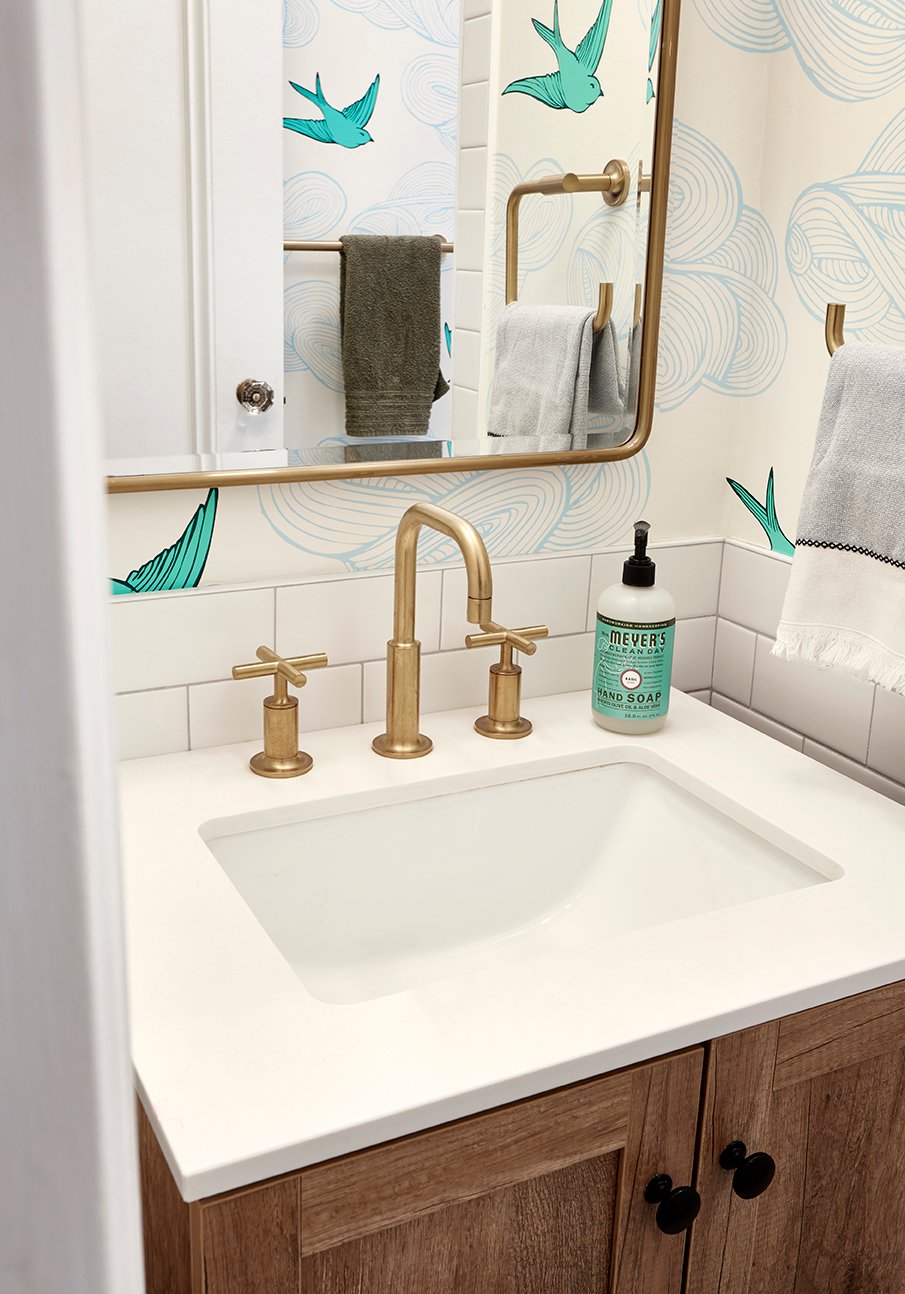
Granite brings a sense of permanence and natural beauty to the bathroom. It’s a great fit for primary suites where you want to make a statement and add long-term value. Each slab is unique, with its own mineral pattern and color variation, which means your countertop will never look exactly like anyone else’s.
Estimated price of granite: Installed granite countertops typically range from $60 to $100 per square foot.
Pros of Granite:
Cons of Granite:
Marble is synonymous with luxury and timeless appeal. This countertop material is best suited for households that are willing to do a little bit of extra maintenance for the sake of added elegance. Its soft veining and luminous surface have made it a design favorite for centuries, but it does require a thoughtful approach to care.
Estimated price of marble: Marble countertops usually cost between $80 and $150 per square foot installed; different types naturally come with different price points.
Pros of Marble:
Cons of Marble:
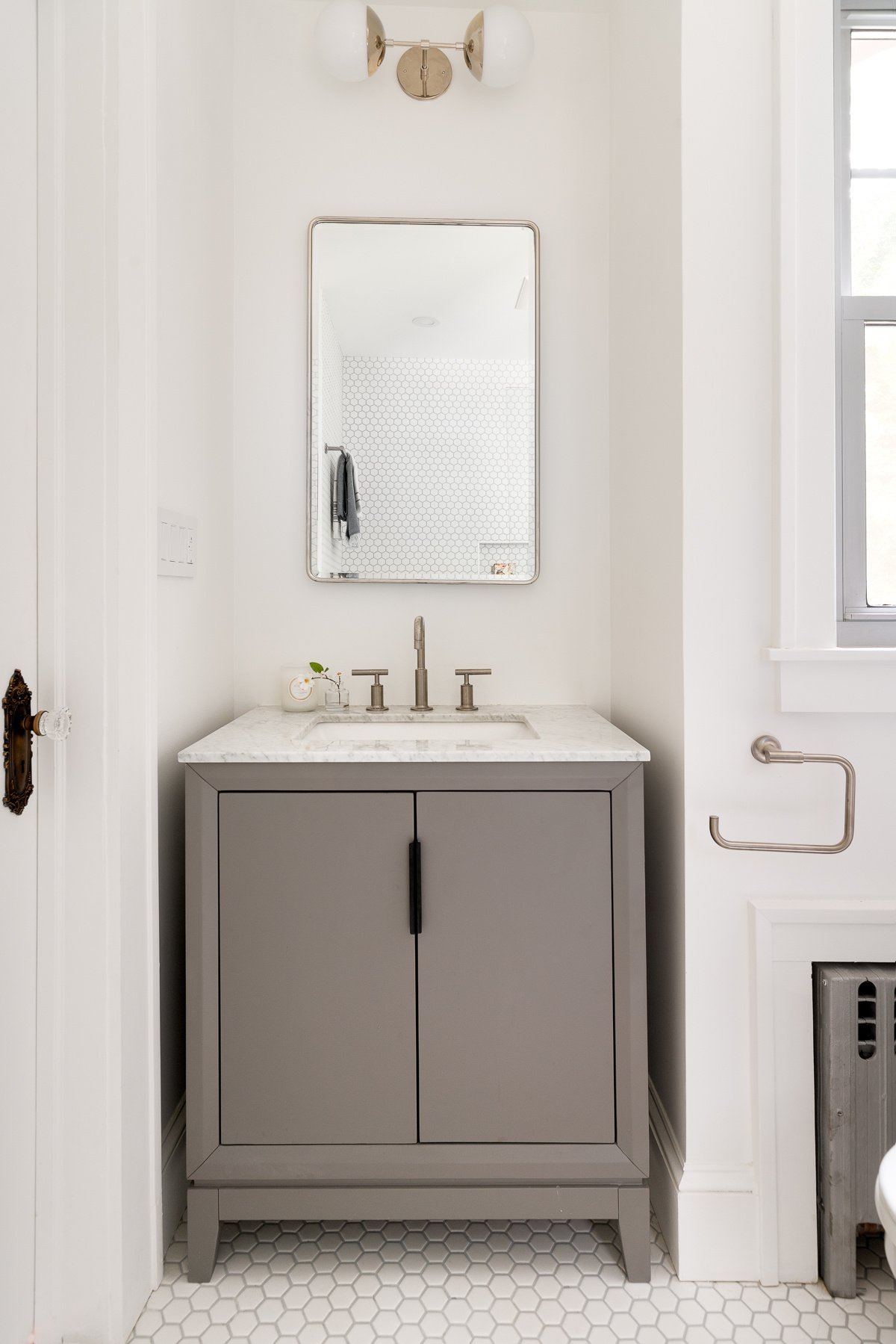
Perfect Every Detail of Your Bathroom
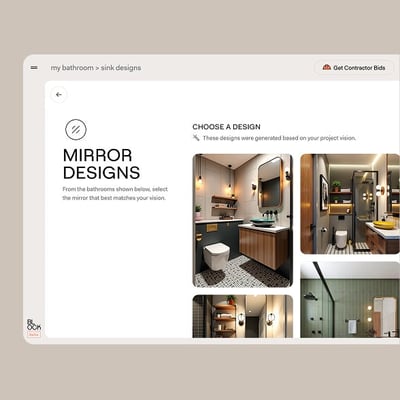
Solid surface countertops, such as Corian, offer a modern look and the flexibility to create integrated sinks or custom shapes. This type of material is a smart idea for kids’ bathrooms, guest baths, or any space where you want a smooth, easy-to-clean surface. Made from acrylic or polyester resins, solid surface provides a smooth, non-porous finish.
Estimated price of solid surface: Solid surface countertops generally run from $50 to $90 per square foot installed.
Pros of Solid Surface:
Cons of Solid Surface:

Laminate countertops have evolved far beyond their reputation for being a budget option. This material is ideal for secondary bathrooms, rental property renovations, or quick updates where cost and easy installation are priorities. Today’s laminates can convincingly mimic stone, wood, or concrete, and they’re available in a wide range of colors and patterns.
Estimated price of laminate: Laminate is one of the most affordable options, typically costing $20 to $50 per square foot installed.
Pros of Laminate:
Cons of Laminate:
Concrete countertops bring a modern, architectural edge to the bathroom. This material is best for contemporary spaces, custom projects, or homeowners who want a truly unique, handcrafted look. Each piece is custom-poured, allowing for unique shapes, integrated sinks, and a range of finishes.
Estimated price of concrete: Expect to pay between $80 and $140 per square foot installed for concrete countertops.
Pros of Concrete:
Cons of Concrete:
.jpg?width=2200&height=1467&name=Block_NJ_0082%20(1).jpg)
Bring Your Dream Bathroom to Life
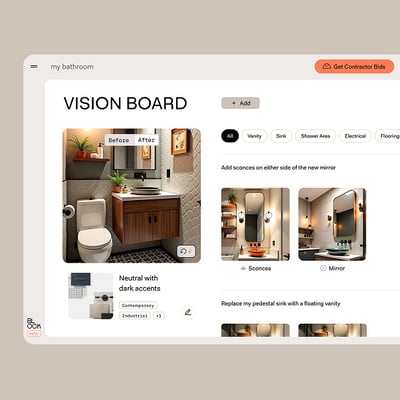
Butcher block brings warmth and natural texture to the bathroom, offering a softer, more organic alternative to stone or engineered surfaces. This material is best used for vanities in powder rooms or bathrooms where water exposure is limited, or as an accent paired with other materials.
Estimated price of butcher block: Butcher block countertops typically range from $40 to $100 per square foot installed, depending on wood species.
Pros of Butcher Block:
Cons of Butcher Block:
Porcelain countertops are gaining popularity for their durability and versatility. This material is a smart choice for bathrooms that see a lot of use, or for homeowners who want a surface that combines style with easy care.
Estimated price of porcelain: Porcelain countertops generally range from $60 to $120 per square foot installed.
Pros of Porcelain:
Cons of Porcelain:
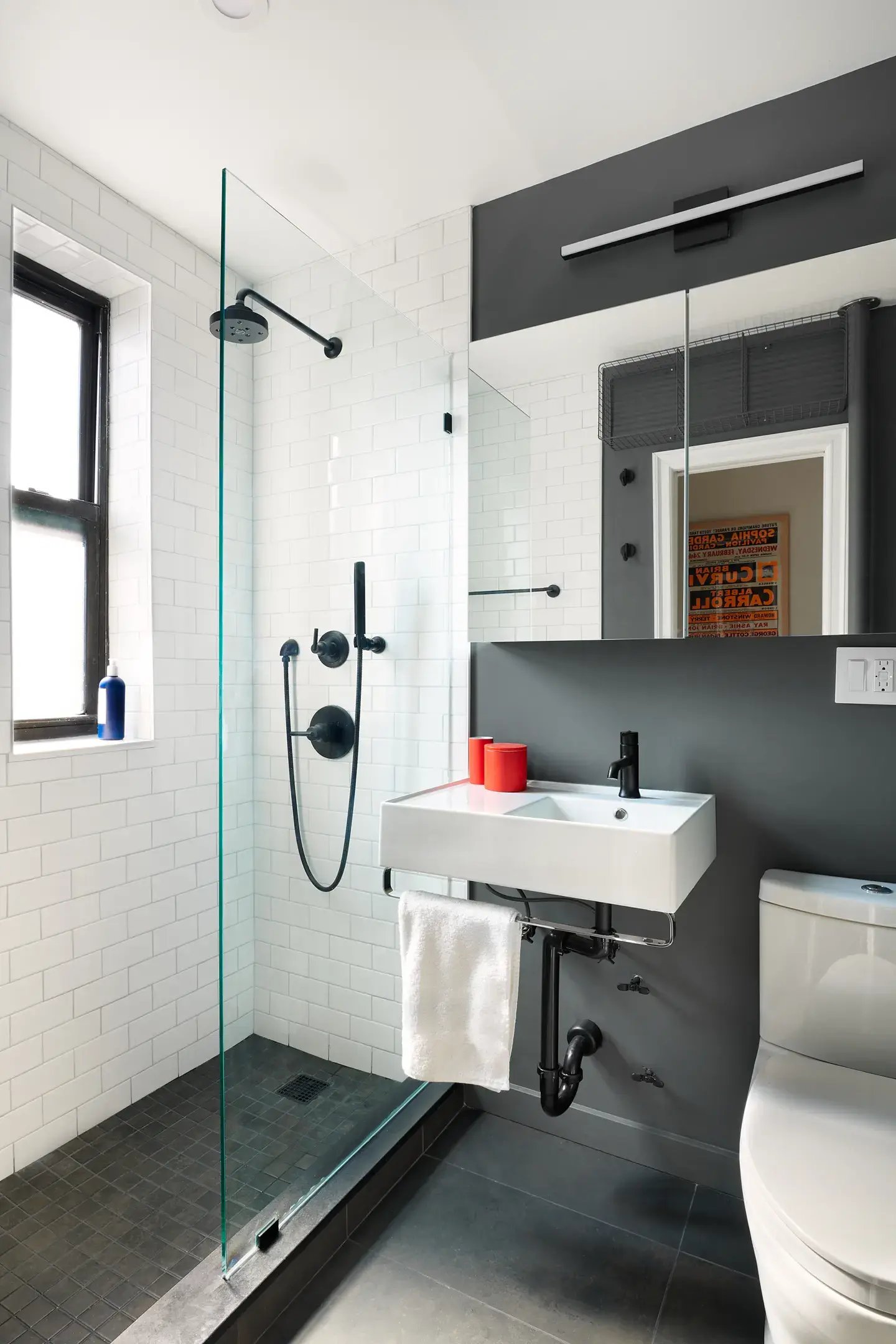
Finding the right type of countertop is about balancing your needs, your style, and the realities of daily life. Here are a few key considerations to help you make a choice that feels right for your home:
Renovate with confidence every step of the way
Step 1: Personalize Your Renovation Plan
Step 2: Receive Quotes from Trusted Contractors
Step 3: Let Us Handle the Project Details

It’s easier to choose a countertop material when you can see how it fits into your overall design. Block’s Renovation Studio lets you experiment with different materials, colors, and edge profiles right in your digital floor plan. As you make changes, you’ll see how each option looks alongside your cabinetry, tile, and fixtures—and get real-time budget estimates that update with every selection. It’s a practical way to compare options, avoid surprises, and move forward with confidence, knowing your new bathroom will look and function exactly the way you want.
A bathroom renovation is a big step, but you don’t have to navigate it alone. Block connects you with experienced contractors and design professionals who understand the details that matter—from choosing the right countertop to ensuring every finish fits your vision. With expert guidance, transparent pricing, and tools that help you visualize every choice, you can move forward with clarity and confidence. When you’re ready to create a bathroom that truly works for your life, Block is here to help you bring it all together.

Written by Block Renovation

Renovate confidently with Block
Easily compare quotes from top quality contractors, and get peace of mind with warranty & price protections.
Thousands of homeowners have renovated with Block

4.5 Stars (100+)

4.7 Stars (100+)

4.5 Stars (75+)

Bathroom
Small Luxury Bathroom Design Ideas
01.29.2026
.jpg?width=640&name=5301c89b-3165-4f83-af34-a6b02eaa6c48%20(1).jpg)
Bathroom
Remodeling a Bathroom Into a Wet Room - Costs & Considerations
01.20.2026
.webp?width=640&name=d8151090-d347-11eb-9d1d-3514adcc0bb1%20(1).webp)
Bathroom
Bathtub Material Comparison: Fiberglass, Porcelain & More
01.20.2026
.jpg?width=640&name=7bacb6ea-82dc-403c-8e9a-191d2fb45b55%20(1).jpg)
Bathroom
Economical Bathroom Remodel Strategies
01.08.2026

Bathroom
Bathroom Mirror Trends to Inspire Your Ideas
01.07.2026
Renovate confidently